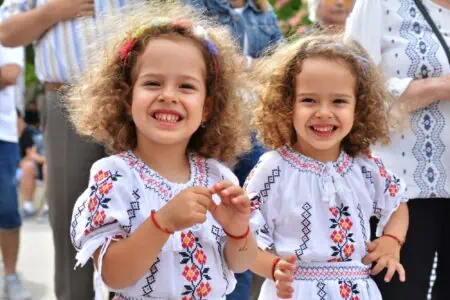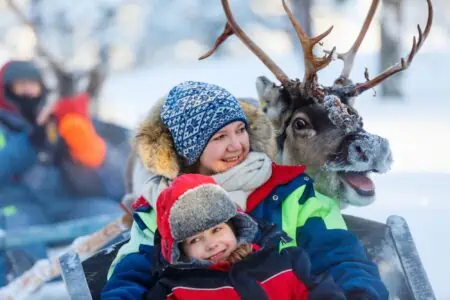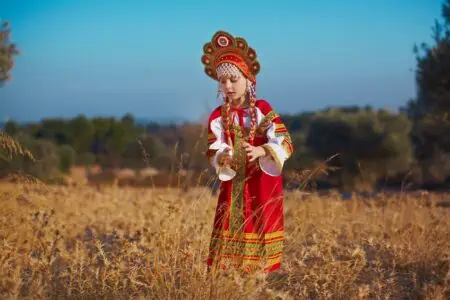Surnames with Y can date back to Old English or include everything from Japanese to Russian names. There is so much variety among last names that start with Y that you may need help knowing where to begin.
Don’t get lost in the world of Y family names when you can easily understand what they’re all about. You’ll find 240 last names starting with Y from all over the world, including patronymic names and nicknames. Learn the most essential facts surrounding these names, from meanings and origins to famous namesakes.
80 Popular Last Names That Start With Y
You may recognize many of these well-known surnames starting with Y from across the globe.
- Yadav – from the Indian-Sanskrit “yādava,” meaning “descendant of Yadu,” a Hindu king and ancestor of Krishna.
- Yagi – means “eight trees” or “arrow tree” in Japanese, the name of a valley in Tajima.
- Yahn – an American spelling of the German male surname Jan, or John.
- Yakes – an American spelling of the Czech Jakeš, a form of Jacob, meaning “supplanter.”
- Yale – from the Welsh “iâl,” meaning “fertile ground,” named after the lordship of Yale in Wales.
- Yamada – means “mountain rice paddy” in Japanese and is used mainly in eastern Japan.
- Yamamoto – means “mountain dweller” or “at the foot of the mountain,” ranked 10th in Japan.
- Yaney – an American spelling of the German Jähne, one of the nicknames for Johannes.
- Yáñez – a unique 5-letter form of Juan, the Spanish equivalent of John.
- Yang – originally appeared as Yangshe, meaning “sheep’s tongue,” shortened to Yang by an ancient ancestor.
- Yanik – a Slavic and Turkish variation of Janik, from the Hebrew John, meaning “God is gracious.”
- Yankovich – an Anglo form of the South Slavic Janković, taken from the male Janko (John).
- Yankowski – an American spelling of the Polish Jankowski, a geographical surname ranked 13th in Poland.
- Yapp – means “crooked,” “bent,” “deceitful,” “smart,” and “shrewd” in Old English.
- Yarberry – a 7-letter place name given to someone living near a “yew tree (berry) thicket.”
- Yarborough – originally a place name in Lincolnshire, from the Old English “eorðburg,” meaning “earthworks.”
- Yarbrough – based on Yarburgh in Lincolnshire or Yarborough Camp in Croxton, means “ground fortress.”
- Yard – for someone living “in the yard” based on the Middle English “yerde,” meaning “enclosure, yard.”
- Yardley – originated in the 10th-century, meaning “woodland from which spars are taken” or “enclosed meadow.”
- Yared – mainly occurs in Ethiopian and Lebanese traditions; a biblical form of Jared, meaning “rose.”
- Yarnell – an Old English variation of Arnall, or Arnold, meaning “eagle power.”
- Yarosh – among 6-letter Ukrainian and Belorussian Y last names using “jar/yar,” meaning “strong.”
- Yarrow – from various English towns named after the rivers running through them.
- Yarwood – originally Yarwode, composed of the Old English “earn,” meaning “eagle,” and “wudu,” meaning “wood.”
- Yasin – from the Arabic “yā sīn,” the first letters written in Sura 36 of the Koran.
- Yates – from the Old English “geat,” meaning “gate,” as an occupational surname for a gatekeeper.
- Yauch – from the German Jach, from “jūch,” meaning “yoke” (a unit of measurement of land).
- Yawn – an Anglo spelling of the German Jahn, the equivalent to John.
- Ybanez – a Basque variant of Ibáñez, for a “son of Ibán,” a form of John.
- Ybarra – also appears as Ibarra, taken from the Spanish-Basque “ibar,” meaning “meadow.”
- Ye – means “leaf” in Chinese and is linked to a city in Ye County, Henan.
- Yeadon – located in Yorkshire; composed of the Old English “gǣh,” meaning “steep,” and “dūn,” meaning “hill.”
- Yeagle – an Anglo variation of the German Jäggle; also considered a nickname for Jakob.
- Yeaman – a Scottish form of Yeoman, meaning “yonge man,” for an attendant in a noble household.
- Yeargin – an Americanized spelling of the German Jürgen, meaning “farmer” or “earthworker.”
- Yeatman – among 7-letter occupational last names that start with Y, which means “gatekeeper.”
- Yeats – from the Old English “geat,” meaning “gate,” for someone living near town or castle gates.
- Yehuda – the Hebrew name for Judah, from “yadah,” meaning “to praise.”
- Yelk – a form of the 4-letter Swiss-German Jelk, linked to “Jelle,” meaning “sacrifice.”
- Yellott – an English-Yorkshire version of Elliott, originally meaning “the lord is my God” in Hebrew.
- Yelton – made up of the Old Norse name Jóli and the Old English “tūn,” meaning “farmstead.”
- Yenney – a variation of the Swiss-German Jenny, a nickname for Jähn (John).
- Yeo – from the Old English “ea,” for those living near the River Yeo or any river.
- Yepez – a Spanish variation of Yepes, the name of a town in Toledo, Spain.
- Yerger – from the Middle German “gar,” meaning “lance,” as an occupational name for a spear maker.
- Yerkes – an American spelling of the German Jerkes, an unusual form of George, meaning “farmer.”
- Yi – used in both China and Korea and is a girl’s name, meaning “joy” and “harmony.”
- Yielding – means “from Yeldon,” from the old river name Gifle and the Old English “denu,” meaning “valley.”
- Yingling – an Americanized spelling of the German Jüngling, meaning “young person.”
- Yip – means “to be in harmony,” “leaf,” or “page” in Cantonese Chinese.
- Yniguez – a variation of the Spanish Iñíguez, for a “son of Íñigo,” meaning “fiery.”
- Yocham – from the German Jochem, among occupational German last names starting with Y; means “dyer.”
- Yocum – taken from the German Jochum, a form of Joachim, meaning “established by God” in Hebrew.
- Yoder – a variation of the Swiss-German Joder, a pet name for Theodore, meaning “gift from God.”
- Yohannan – comes from the Hebrew Yohanan, a form of John often appearing in Ethiopia.
- Yon – means “poplar” in Chinese and is an offbeat spelling of the German Yohn (John).
- Yonan – originally appeared as the Syriac Yōnān and is associated with the biblical Jonah, meaning “dove.”
- Yong – a Korean surname meaning “dragon” or “sun,” which also appears as Ryong.
- Yonge – an Anglo spelling of the Dutch De Jonge/De Jong, equivalent to the English Young.
- Yoon – among Korean surnames starting with Y, which means “governor,” also appears as Yun.
- York – taken from the city of York, England, named initially Eburacum in Latin.
- Yorke – relates to the Old English “eoforwīc,” meaning “wild boar settlement.”
- Youmans – an occupational surname from the Old English “geoman,” meaning “farmer” or “cultivator of land.”
- Young – from the Middle English, “yonge,” meaning “young,” as given to a younger son.
- Youngberg – taken from the Swedish Ljungberg or Ungberg, meaning “young mountain hill.”
- Youngblood – relates to the German Jungbluth, referring to someone with “youth” and “vitality.”
- Youngdale – from the Swedish Ljungdahl, composed of “jung,” meaning “heather,” and “dahl,” meaning “valley.”
- Younger – first appeared in Fife and Clackmannanshire in Scotland; given to the second-born son.
- Youngman – from the Middle English, “yunge man,” meaning “young servant” in a household.
- Yow – a unique 3-letter Chinese variation of Rao, meaning “rich” and “abundant.”
- Yu – means “surplus” in Chinese and occurs in southern China, originating near Shaanxi.
- Yuill – refers to the Old English pagan festival of Yule and also appears as Youell.
- Yule – dates back to an English winter solstice festival based on the Old Norse “jol.”
- Yundt – an American spelling of the German Jundt, from the female Judinta (Judith).
- Yunker – a Danish-Norwegian title linked to the German Juncherre, meaning “young nobleman” or “young lord.”
- Yürek – among Turkish surnames beginning with Y, which means “heart,” “soul,” “willpower,” or “courage.”
- Yurick – from the Slovak Jurik and Polish Jurek, both originating with the Greek Georgios, meaning “farmer.”
- Yurkovich – a Ukrainian and Belorussian surname based on Yurko, from Yurk, a Slavic variant of George.
- Yusuf – the Arabic spelling for the Hebrew Yosef (Joseph), meaning “God increases.”
- Yuzon – a Chinese-Filipino surname made up of “iû,” meaning “willow” and “sūn,” meaning “grandchild.”
80 Unique Last Names Starting With Y
You’ll be fascinated with something special about these last names that start with Y.
- Yaccarino – an Anglo spelling of the Italian Iaccarino, a nickname for Iacco or Giacco, a form of Jacob.
- Yach – from the Old Slavic “jach,” meaning “hard, strong,” as given to a hardworking person.
- Yacoub – from the Arabic Ya‛qūb, an Islamic prophet known as Jacob in the Bible.
- Yaffee – from the Hebrew “yafe,” meaning “beautiful” and “pleasant,” also appears as Jaffe.
- Yaghi – means “brave” in Kurdish, in addition to “insurgent” or “rebel” in Persian.
- Yakovlev – the 8-letter Russian patronymic surname is based on Yakov, the Russian form of Jacob.
- Yalden – means “settlement of the people of a man called Ealda” in Old English.
- Yallop – taken from a Scandinavian place name, based on the Old Norse “jǫldu-hlaup,” meaning “mare’s leap.”
- Yamaguchi – refers to the “yamabayashi no iriguchi,” or “entrance to the mountain forest.”
- Yamanaka – means “middle of the mountain” in Japanese for descendants of the Akamatsu family.
- Yamane – common in Tokyo-Saitama, west-central Japan, and Okinawa; means “mountain root.”
- Yamasaki – means “mountain promontory” in Japanese and is linked to certain samurai.
- Yamashita – refers to “one who lives below the mountain,” mainly used on the island of Kyūshū.
- Yamazaki – an alternate spelling of Yamasaki, meaning “mountain promontory” in Japanese.
- Yamin – a Muslim surname taken from the Arabic “yamīn,” meaning “right-hand side.”
- Yan – both a surname and a girl’s name that means “beautiful” in Chinese.
- Yancy – a Native American ethnic name for an “Englishman” based on the term “Yankee.”
- Yanes – an alternative spelling to the Spanish Yáñez, meaning “son of Juan (John).”
- Yanev – means “son of Yane” in Bulgarian as a nickname for Yoan, a form of John.
- Yanke – an Anglo form of the Dutch Janke or Jahnke, a pet name meaning “baby Jan.”
- Yano – means “arrow field” in Japanese and is also a place name called “eighth field.”
- Yantis – an American spelling of the German Janz or Janez, both alternative forms of John.
- Yarber – comes from the Old English “eorth-burg,” meaning “earthwork,” which is equivalent to Yarbrough.
- Yarnall – a medieval English variation of the Norman Arnold, meaning “eagle rule.”
- Yasutake – means “peaceful warrior,” one of the many Japanese last names that start with Y.
- Yazdi – originally given to someone from the city of Yazd, located in central Iran.
- Yazzie – based on the Navajo “yázhí,” meaning “little one,” “small,” or “young.”
- Yeager – an Anglo spelling of the German Jaeger, from Jäger, meaning “hunter.”
- Yedinak – an Americanized version of the Slovak Jedinák or Polish Jedynak, meaning “only child.”
- Yee – is used in place of various Chinese surnames; its meanings include “surplus,” “extra,” and “remainder.”
- Yegorov – a male patronymic Russian last name meaning “son or descendant of Yegor.”
- Yeh – a primarily Taiwanese version of a Chinese surname meaning “to be in harmony” or “leaf.”
- Yellin – an English form of the Norwegian Hjellen, from “hjallr,” meaning “terrace” or “ledge.”
- Yelton – means “from Youlton,” from the Old Norse Jóli, and the Old English “tūn,” meaning “estate.”
- Yelverton – an alternative spelling of Elverton, an 18th-century place in England called “Elford’s town.”
- Yelvington – another form of the English Yelverton, given to those from Youlton in Yorkshire.
- Yen – the name of an ancient Chinese state of Zhou, one of the Sixteen Kingdoms.
- Yencha – the Anglo spelling of the Slovak and Czech Jenča, a short form of Jan (John).
- Yenser – an American variation of the German Jenzer, from Jantzer, a nickname for Johannes/John.
- Yenter – an alternate spelling of the German Jenter, which uses the root “gand,” meaning “magic.”
- Yeomans – from the Middle English “yeman,” given to an attendant in a noble household.
- Yerby – initially used for those living in Yarborough, in Lincolnshire, England.
- Yerian – an English spelling of the German Irion, known as Gereon, named after a medieval martyr.
- Yerkes – an Anglo form of the German Jerkes, one of many German surnames based on George.
- Yeske – an Americanized spelling of the Polish Jeśke, a Slavic-German form of Johannes.
- Yesuda – from the Japanese “yasu,” meaning “peace,” and “ta,” meaning “rice paddy.”
- Yett – based on the Old English “geat,” meaning “gate,” as given to a gatekeeper.
- Yetto – a very different version of the French Guertin, which became John B. Yetto in the 19th-century.
- Yeung – is a good example of Chinese last names starting with Y, representing many different surnames.
- Yingst – an English spelling of the German Jüngst for the youngest son in a family.
- Ylitalo – made up of the Finnish “yli,” meaning “upper” and “talo,” meaning “house building.”
- Yockey – an Anglo spelling of the German Jocke, a nickname for Jakob.
- Yoest – an American variation of the Dutch Joost or Jost, meaning “just,” “equitable,” or “fair.”
- Yohannes – is considered an Ethiopian form of Johannes, the Germanic version of John.
- Yong – means “dragon” in Chinese, dating back to the 13th-century Koryŏ King Wŏn-jong court.
- Yongue – an uncommon English variation of Young that may also relate to the Dutch De Jonge.
- Yonkers – a surname named after Van der Donck, whose nickname was Jonk Herr, meaning “young gentleman.”
- Yoo – another variation of Yu, a Chinese surname meaning “rich,” “abundant,” and “exuberant.”
- Yopp – an Anglo form of the German Jopp, from Hiob, the German equivalent of Job.
- Yordanov – a Bulgarian patronymic surname meaning “son of Yordan,” a version of Jordan.
- Yore – for someone living near the River Ure in medieval England, also called Yor.
- Yoshioka – means “lucky” or “good hill” in Japanese; used in western Japan and the Ryūkyū Islands.
- Yost – another spelling of the Dutch Jost, derived from Joost, a nickname for Johannes.
- Younan – an Arabic variation of the Greek Ionian, an ancient tribe connected to the Persians.
- Youngquist – an American spelling of the Swedish Ljungquist, meaning “heather twig.”
- Youngstrom – an English version of the Swedish Ljungström, meaning “heather” and “current stream.”
- Youngwirth – derived from the Middle German “jung wirt,” meaning “young ruler” or “foreman.”
- Younker – an Americanized spelling of the German Junker or Dutch Jonker, given to a “young nobleman.”
- Yousfi – a Persian patronymic surname for a “son of Yousef” or “son of Joseph.”
- Yovino – an English form of the Italian Iovino, from the Latin Jovinus and Iovis, meaning “Zeus.”
- Yox – an American spelling of the German Jacks, one of many variations for Jack.
- Yoxall – from the Old English “geoces halh,” meaning “yoke’s nook,” for a yoke of oxen.
- Yslas – a Hispanic form of the Spanish Islas, the plural of “island,” meaning “from the islands.”
- Yuan – a Mandarin spelling of a Chinese surname meaning “of long dress.”
- Yuhas – an English variant of the Hungarian Juhász, an occupational name for a “shepherd.”
- Yum – another spelling of Yeom, meaning “to assign” or “to take up a post” in Chinese.
- Yung – an English variation of the German Jung and English Young, meaning “youthful.”
- Yurk – an Anglo form of the German-Sorbian Jurk, from Juro, the equivalent of George.
- Yusko – an American spelling of the Polish Juśko, the Polish version of Justin or Julian.
- Yutzy – an English version of the German Jutzi, from the female Jutta, a form of Judith.
80 Rare Surnames Starting With Y
You’d be hard-pressed to find these obscure and interesting last names that start with Y.
- Yablon – taken from the Polish “jabłoń,” meaning “apple tree,” also named after various Polish villages.
- Yacovone – an Americanized spelling of the Italian “Iacovone,” meaning “big Jacob” from the Latin Iacobus.
- Yadao – a Filipino nickname from the Hispanic “Ilokano,” meaning “get away from” or “keep one’s distance.”
- Yadira – best known as a Spanish girl’s name with Arabic origins, meaning “worthy” and “friend.”
- Yafai – named after the Yafa’i tribe in Yemen; also refers to Yāfā (now called Jaffa).
- Yahia – also appears as Yaha or Yahya, an Arabic form of John, meaning “gift of God.”
- Yahner – an American spelling of the German Jähner, an occupational name for a hunter.
- Yaklin – an English form of the South German Jäcklin, a nickname for Jakob.
- Yakovleva – a Russian patronymic surname meaning “daughter of Yakov,” a Russian version of Jacob.
- Yakubova – a Russian female form of Yakubov, for a “son of Yaakov,” meaning “supplanter.”
- Yala – from an Arabic phrase meaning “let’s go” or “hurry up,” based on “yalal,” denoting “surprise.”
- Yalch – among German occupational surnames starting with Y, that means “woodcutter.”
- Yam – another spelling for the Chinese Yin; means “space between two things” in Mayan.
- Yamagishi – consists of the Japanese “yama,” meaning “mountain,” and “kishi,” meaning “beach.”
- Yamauchi – means “within the mountains” in Japanese and also appears as Yamanouchi.
- Yambor – an American spelling of the Hungarian Jámbor, meaning “modest” as a nickname for someone humble.
- Yankey – an English variation of the Dutch Janke, a pet name meaning “baby Jan.”
- Yarbroug – one of the many variations of Yarborough, from the Old English “eorðburg,” meaning “earthworks.”
- Yarlagadda – is rare among Indian last names that start with Y named after a village in Krishna.
- Yasko – an Americanized form of the Polish Jaśko, based on Jan, a variation of John.
- Yasmeen – originally an Arabic and Persian female name based on “yāsmīn,” meaning “jasmine.”
- Yaw – a West African-Ghananese surname first given to a boy “born on a Thursday.”
- Yax – an Anglo form of the German Jacks; also means “green” in Maya.
- Yazdani – from the Persian “yazdan,” meaning “deity and gods,” for those from Yazd, Iran.
- Ycaza – means “fig tree grove” in Basque when derived from the Latin “ficus,” meaning “fig.”
- Yeakey – an American variant of the German Jäcke, a nickname for Jacob.
- Yeakle – an Anglo spelling of the German Jäckle, from the Bavarian “jagel,” meaning “hunter.”
- Yearick – an English form of the German Görg, a unique variation of George.
- Yeater – from the German Jetter, from the Middle English “yetere,” meaning “caster of metal objects.”
- Yeazel – a short form of the Dutch Van Ysselstein; associated with Alst, in Friesland, the Netherlands.
- Yedinak – an Americanized version of the Slovak Jedinák, meaning “only child.”
- Yell – an English name derived from the Old English G(i)ella, whose meaning is unknown.
- Yelland – refers to Yealand Conyers and Yealand Redmayne in Lancashire, meaning “land by the sea.”
- Yellowhair – based on the Native American-Navajo “Bitsiiʼ Łitsoii,” meaning “his yellow hair.”
- Yeom – means “inflammation” in Korean and also appears as Yum or Yŏm.
- Yerke – an American variation of the German Jerke, one of a few forms of George.
- Yeu – a Shangai variant of a Chinese surname, meaning “poplar.”
- Yh – means “smelting” in Chinese Mandarin, referring to an official post during the ancient Zhou dynasty.
- Yho – used by Chinese Mayalsians to denote an “analogy,” “simile,” “metaphor,” or “allegory.”
- Yick – a Chinese-Cantonese version of Yi, meaning “amiable” or “easy” in Chinese.
- Yildiz – means “star” in Turkish and is most commonly associated with Azerbaijan Turks.
- Yilmaz – means “plucky,” “unyielding,” “unbeatable,” or “brave” in Turkish, occasionally a male name.
- Yisrael – a biblical form of Israel, meaning “God contended,” when associated with Jacob wrestling the angel.
- Yler – an English occupational name for a “tiler” and a shortened form of Tyler.
- Yles – a short variation of Hayles taken from the Middle English Aylise, meaning “noble warrior.”
- Ynfante – an Italian nickname for someone with a “childlike disposition,” from “infante,” meaning “infant.”
- Yng – means “forever” in Chinese, when derived from Yong, meaning “dragon.”
- Ynoa – a specifically Dominican form of the Spanish Inoa, whose meaning is unknown.
- Yok – originated in Switzerland as Yoke, referring to a wooden bar that connects oxen.
- Yokota – means “rice paddy to the side” in Japanese and also appears as Yokoda.
- Yona – a particular version of John originating with the Bemba tribe of Zambia.
- Yonko – a nickname for Yona, the Ukrainian form of Jonas, meaning “dove” in Hebrew.
- Yook – means “meat” in Korean, where it also appears as Yuk or Youk.
- Yorba – is considered rare among Hispanic last names starting with Y, with an unknown meaning.
- Yorio – an Americanized spelling of the Italian Iorio, a southern Italian form of Georgio.
- Yoseph – means “he will add” in reference to the biblical Joseph, also written as Yosef.
- Yoshinaga – means “eternal luck” in Japanese, rarely occurring outside western Japan and the Ryūkyū Islands.
- Yothers – associated with the Swiss-German Yother and Joder, a short form of Theodore.
- Youkhana – an Assyrian variant of Yūḥannān, the Syrian version of John.
- Younis – the Arabic equivalent of Jonah, also a nickname for Yousef/Joseph, meaning “God increases.”
- Yount – an Americanized spelling of the German Jundt that dates back to the Hebrew Judith.
- Yousefi – appears with Persian surnames starting with Y and means “son of Joseph.”
- Youshino – is a rare variant of the Japanese Yoshino, meaning “lucky (or good) field.”
- Yrigoyen – from the Basque Irigoyen, composed of “iri,” meaning “village settlement,” and “goi,” meaning “upper.”
- Yruegas – a Basque selling of the Spanish Iruegas; is rare in Spain but appears in Mexico.
- Ytuarte – a Basque form of the Spanish Ituarte, meaning “in the midst of” something.
- Yuhasz – an Anglo spelling of the Hungarian Juhász, an occupational name for a shepherd.
- Yuille – associated with the English pagan Yule festival, for babies born on Christmas Day.
- Yūki – a Japanese surname meaning “snow” or “happiness,” associated with winter.
- Yulfo – is rare worldwide and ranked 633rd in Puerto Rico in 2014, with an unknown meaning.
- Yumang – a Filipino occupational hunter’s name using the Tagalog root “umang,” meaning “snare trap.”
- Yun – a Mandarin variation of a Chinese surname, meaning “cloud” or “born in the clouds.”
- Yunga – a group of people in modern-day Peru; a version of the Quechuan “yunka,” meaning “warm valley.”
- Yupa – a Quechan word meaning “abundant” which appears in both Peru and Ecuador.
- Yust – an American spelling of the Germanic and Slavic Just, from the Latin Justus, meaning “justice.”
- Yusun – a Chinese-Filipino surname given to a “second grandchild” based on the Chinese “sūn.”
- Yusupov – a Russian patronymic surname meaning “son of Yusup,” the Russian form of Joseph.
- Yuuki – the most unusual spelling of the Japanese Yūki, meaning “gentle hope.”
- Yyi – the rarest of Asian surnames starting with Y, based on Yi, meaning “plum.”
- Yzaguirre – a Basque spelling of the Spanish Izaguirre, meaning “prominence” or “clearing exposed to the wind.”





